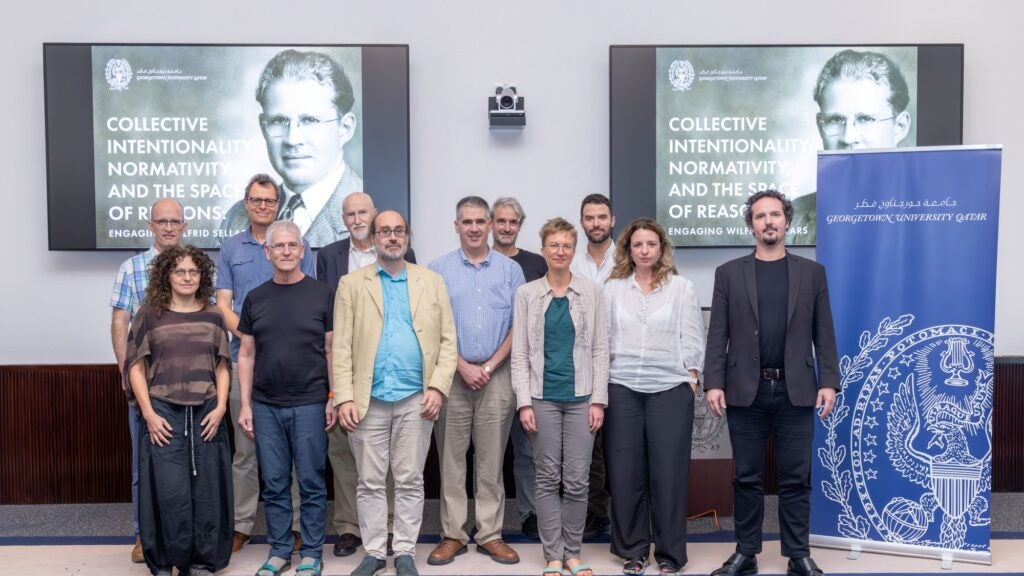Is Morality a Group Effort? GU-Q Professor Jeremy Koons Explains Why It Should Be

Georgetown University in Qatar (GU-Q) hosted Collective Intentionality, Normativity, and the Space of Reasons, a workshop exploring the work of philosopher Wilfrid Sellars. It was organized by GU-Q Professor Jeremy Koons, whose research on Sellars’s practical philosophy has been essential in reviving interest in this field. For Professor Koons, the workshop was an opportunity to explore how collective reasoning can address today’s most pressing challenges.
Professor Koons’s philosophical journey began with an introductory philosophy class in college. “I was hooked,” he recalls. Initially drawn to the concept of free will, his focus later shifted to ethics and the study of what humans accept as truth. It was in this area that he encountered Sellars’s groundbreaking philosophy, which challenged the notion that knowledge rests on self-evident moral truths—known as foundationalism. Instead, Sellars proposed that knowledge emerges through encounters with others. “Sellars launched a devastating critique of foundationalism,” Professor Koons explains. “Many of my publications elaborate on and defend his view.”
At the workshop, Sellars’s concept of we-intentions took center stage. “For Sellars, to think morally is to think cooperatively,” Professor Koons notes. He emphasizes that this framework offers essential guidance for tackling systemic challenges—such as climate change and inequality—that require collective action.
Building on this idea of cooperative thinking, another key theme was Sellars’s warning about tribocentricity—the inclination to limit moral concern to one’s own group. “We have an unfortunate tendency to identify with a ‘we’ that is smaller than all of humanity,” Professor Koons reflects. He views these insights as vital in today’s divided world. “A long-standing question in philosophy is, ‘Why be moral?’ Many answer it through self-interest. For Sellars, this approach is misguided.” Professor Koons emphasizes that Sellars saw personhood as inherently rooted in community. “You cannot first be a person and only then decide whether to join a community and follow its norms. We exist as persons only within communities; our personhood is created and sustained by them.”
Professor Koons also highlighted the university community’s crucial role in advancing this work. “GU-Q has been incredibly supportive all along,” he says. In 2017, the university hosted a book workshop that provided valuable feedback on his book, The Ethics of Wilfrid Sellars (Routledge, 2018). Professor Koons also co-organized a 2021 workshop that laid the groundwork for this year’s event.
The workshop’s impact will extend beyond the event, with plans to publish an anthology of the presented papers. For Professor Koons, the takeaway is clear: “Morality isn’t about what I must do or what you must do—it’s about what each and every one of us must do cooperatively, collectively as a group.”